MercoPress. South Atlantic News Agency
Tag: Brazil Central Bank
-
Wednesday, October 13th 2021 - 15:16 UTC
Double digit inflation in Brazil spiked by increasing fuel and food costs
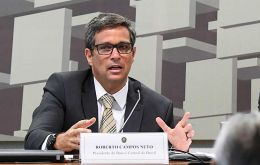
Brazilian market analysts raised their forecasts for inflation and the Selic key interest rate for 2022 as increasing fuel and food costs plus resurgent demand for services are spiking prices as the pandemic seems to be coming to an end.
-
Thursday, December 10th 2020 - 09:11 UTC
Brazil central bank keeps interest rate at record low 2%, but admits scenario of inflation expectations

Brazil’s central bank kept its key interest rate at a record low 2.00% on Wednesday, as expected, but gave the first sign it could soon drop its pledge to keep rates lower for longer as inflation expectations converge toward target.
-
Wednesday, October 28th 2020 - 08:41 UTC
Brazil's inflation outlook rises to 3%, spiked by food prices, Focus survey

Brazil's 2020 inflation outlook rose to 3%, a central bank survey showed on Monday, the 11th week in a row it has risen as a recent spike in food prices continues to intensify short-term inflation pressures.
-
Sunday, June 7th 2020 - 09:18 UTC
Brazilian Real rebounding strongly after months of erosion; central bank forecasted to further cut Selic rate

The Brazilian Real and Mexican peso have both rebounded strongly in recent weeks, but their rallies are starting to diverge with the peso running out of steam and the Real gaining momentum.
-
Thursday, May 7th 2020 - 07:34 UTC
Brazil lowers interest rates to a record low 3%, with suggestions of a similar cut in June
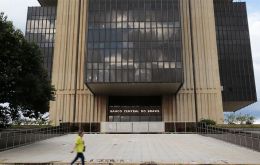
Brazil’s central bank slashed interest rates more than expected on Wednesday, cutting its benchmark Selic rate by 75 basis points to a record-low 3.00% and previewing another cut as it battles an economic crisis fueled by the coronavirus pandemic.
-
Friday, December 20th 2019 - 08:56 UTC
Brazil central bank raises 2020 growth forecast to 2.2%
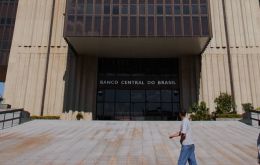
Brazil’s central bank on Thursday raised its 2020 gross domestic product growth forecast to 2.2% in its quarterly inflation report from 1.8% previously but cautioned it was conditional on continued progress on economic reforms.
-
Tuesday, October 1st 2019 - 09:03 UTC
Brazil's national debt at a record high in August, 79.8% of GDP
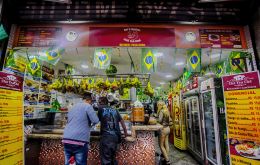
Brazil's national debt rose to the highest on record in August, central bank figures showed on Monday, driven by a combination of increased interest payments, higher borrowing and a weaker exchange rate.
-
Tuesday, September 10th 2019 - 09:50 UTC
August inflation in Brazil below target, with room for further rate cuts

Consumer price inflation in Brazil was well contained in August, as forecast, reinforcing expectations of deeper interest rate cuts by the central bank as it tries to fire up economic growth.
-
Wednesday, August 21st 2019 - 09:52 UTC
Brazil tightens controls over money laundering and illicit financial activities

The Brazilian government on Tuesday issued a decree moving the Financial Activities Control Board (Coaf), which monitors nefarious financial activity such as money laundering, into a new Financial Intelligence Unit under central bank control.
-
Tuesday, August 6th 2019 - 09:33 UTC
Economists forecast further interest rate cuts by Brazil's central bank
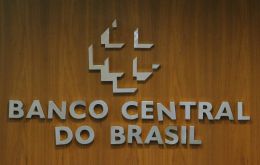
Economists lowered their forecasts for where Brazil’s benchmark Selic interest rate will be at the end of 2019, a weekly central bank survey showed on Monday, after policymakers cut rates more aggressively than most expected to a record low last week.
